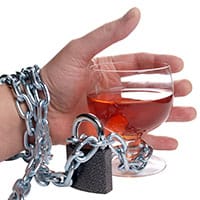When it comes to many behaviors, people often don’t have an accurate idea of the choices that others are making. Teenagers may think that their fellow students use their seat belts less often than they actually do, and men who abuse their romantic partners may overestimate how many other men do the same. A new study adds to the notion that people who drink excessively often don’t have a realistic sense of how much alcohol their peers are drinking.
Why Accuracy Matters When Viewing the Drinking Patterns of Others
In the study, published in March 2015 in the journal Addictive Behaviors, researchers surveyed nearly 10,000 adults in the United Kingdom, the United States, Canada and Australia who had used alcohol in the past year. They wanted to get a sense of how much “normative misperception” the participants had. People with this outlook underestimate how much they drink compared to others. If their view on others’ drinking is substantially off target, they’re likely to consume more alcohol, although the reason why this happens isn’t yet clear, says lead researcher Claire Garnett of the University College London. One explanation researchers have offered for how people develop these inaccurate beliefs is that “people adjust what they believe to be normal to justify their own alcohol use. This allows them to view their alcohol use as normal, and could excuse their own behavior if others’ drinking is seen as more severe,” Garnett says. “These inaccurate beliefs about what is normal in terms of drinking alcohol could then be used as a guideline for their own drinking and what they consider acceptable in different situations.” The researchers asked all participants in the study to take the Alcohol Use Disorders Identification Test (AUDIT). This 10-question survey asks how much you drink, how alcohol affects your life and whether others have suggested that you should cut back. The AUDIT test showed the researchers how much alcohol each participant drank. It also gave them a snapshot of how much the residents of each country were drinking, though as Garnett noted, this was not necessarily a true measure of each country’s alcohol consumption. In addition, the researchers asked the participants how they thought their alcohol use compared to that of others, from very low to very high. They used this answer, along with the score on the AUDIT test, to calculate each person’s degree of normative misperception. Close to half of the participants underestimated how much they drank compared to others. Groups that were especially likely to do this included males and 16- to 24-year-olds. In addition, 1 out of 4 people who drank enough to be at risk of alcohol dependence thought they consumed an average amount, or even less than average.
Adjusting Perceptions May Help Cut Back on Drinking
“I think this study’s take-home message is that normative misperceptions about alcohol use are common in the population of alcohol users in the UK, the US, Australia and Canada,” Garnett says. Recent studies have found alcohol-related misperceptions in other groups. In a 2014 study published in the journal Military Behavioral Health, researchers included 159 active-duty members of the US Army with substance-abuse problems. Military personnel, particularly younger members, tend to have higher rates of alcohol-related problems. Still, the participants overestimated the amount of alcohol that their fellow soldiers actually drank, and they also had an inaccurate idea of how many soldiers engaged in binge drinking. Another study, from 2011, involved college students and their parents. It found that parents tended to overestimate how much the other parents approved of their own kids’ drinking habits. Such misperceptions had a big effect on how these parents viewed their offspring’s behaviors, which in turn influenced the students’ attitudes toward their own drinking. As the authors of the new study noted, if incorrect attitudes about other people’s drinking are swaying you to drink too much, developing a more realistic outlook may help you curb your own misuse. If you’re not sure if you’re drinking excessively, the National Institute on Alcohol Abuse and Alcoholism offers a simple quiz. It can give you a sense of how your alcohol use compares to other people’s choices and how much risk of alcohol abuse or alcoholism you may be facing. By Eric Metcalf, MPH Follow Eric on Twitter at @EricMetcalfMPH




